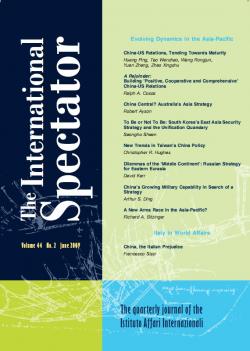The International Spectator, Vol. 45, No. 2, June 2010

30/06/2010
Special cores on Russia-EU Security Relations e Peace and Security in Africa
The Russia-EU Energy Relationship: Getting it Right Free
Recent Publications Free
-
Issue
45/2


